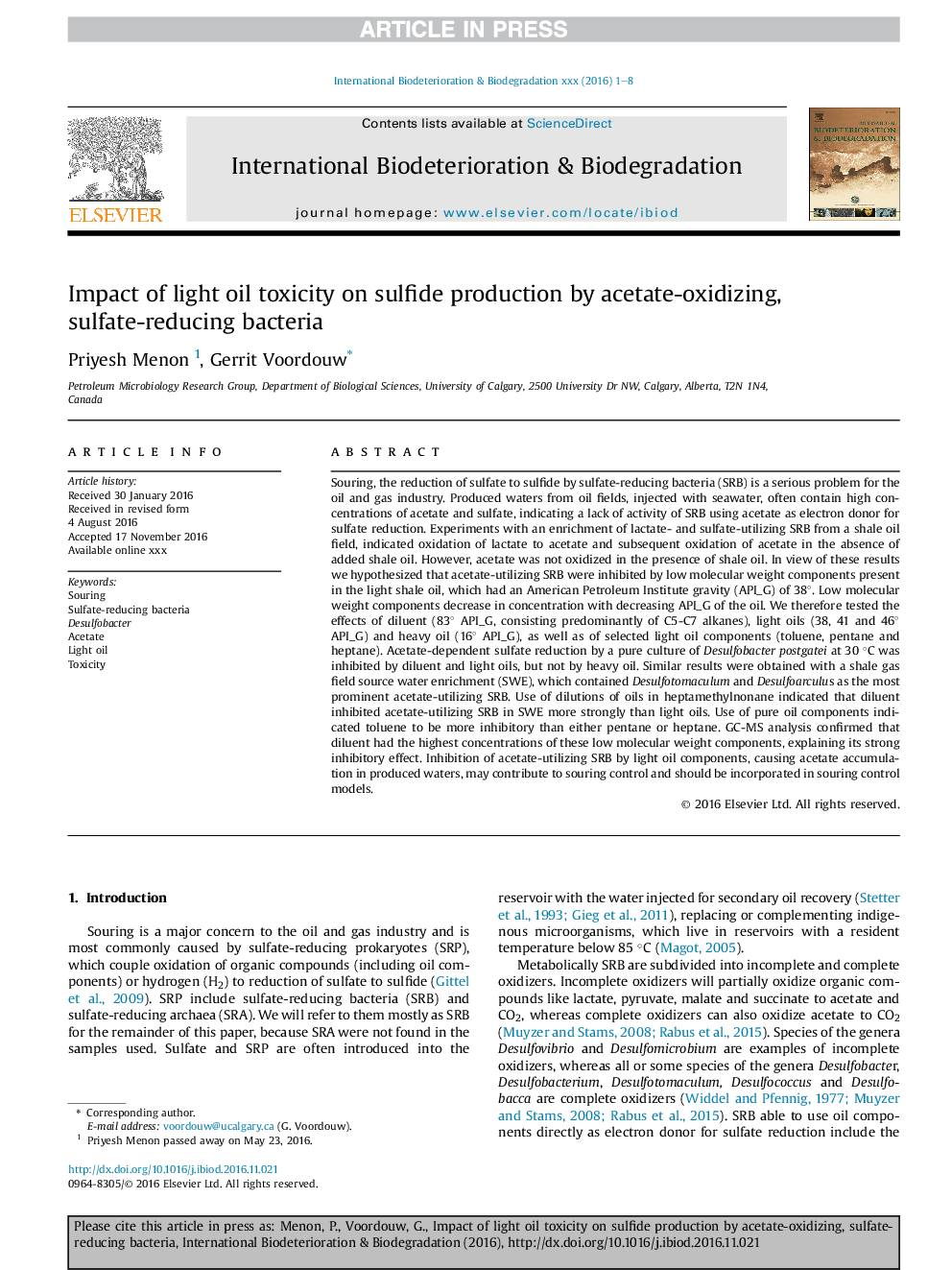| کد مقاله | کد نشریه | سال انتشار | مقاله انگلیسی | نسخه تمام متن |
|---|---|---|---|---|
| 8843978 | 1616291 | 2018 | 8 صفحه PDF | دانلود رایگان |
عنوان انگلیسی مقاله ISI
Impact of light oil toxicity on sulfide production by acetate-oxidizing, sulfate-reducing bacteria
ترجمه فارسی عنوان
اثر سمیت نور نفت بر تولید سولفید توسط استات اکسید کننده، باکتری های کاهش سولفات
دانلود مقاله + سفارش ترجمه
دانلود مقاله ISI انگلیسی
رایگان برای ایرانیان
کلمات کلیدی
موضوعات مرتبط
علوم زیستی و بیوفناوری
علوم محیط زیست
علوم زیست محیطی (عمومی)
چکیده انگلیسی
Souring, the reduction of sulfate to sulfide by sulfate-reducing bacteria (SRB) is a serious problem for the oil and gas industry. Produced waters from oil fields, injected with seawater, often contain high concentrations of acetate and sulfate, indicating a lack of activity of SRB using acetate as electron donor for sulfate reduction. Experiments with an enrichment of lactate- and sulfate-utilizing SRB from a shale oil field, indicated oxidation of lactate to acetate and subsequent oxidation of acetate in the absence of added shale oil. However, acetate was not oxidized in the presence of shale oil. In view of these results we hypothesized that acetate-utilizing SRB were inhibited by low molecular weight components present in the light shale oil, which had an American Petroleum Institute gravity (API_G) of 38°. Low molecular weight components decrease in concentration with decreasing API_G of the oil. We therefore tested the effects of diluent (83° API_G, consisting predominantly of C5-C7 alkanes), light oils (38, 41 and 46° API_G) and heavy oil (16° API_G), as well as of selected light oil components (toluene, pentane and heptane). Acetate-dependent sulfate reduction by a pure culture of Desulfobacter postgatei at 30 °C was inhibited by diluent and light oils, but not by heavy oil. Similar results were obtained with a shale gas field source water enrichment (SWE), which contained Desulfotomaculum and Desulfoarculus as the most prominent acetate-utilizing SRB. Use of dilutions of oils in heptamethylnonane indicated that diluent inhibited acetate-utilizing SRB in SWE more strongly than light oils. Use of pure oil components indicated toluene to be more inhibitory than either pentane or heptane. GC-MS analysis confirmed that diluent had the highest concentrations of these low molecular weight components, explaining its strong inhibitory effect. Inhibition of acetate-utilizing SRB by light oil components, causing acetate accumulation in produced waters, may contribute to souring control and should be incorporated in souring control models.
ناشر
Database: Elsevier - ScienceDirect (ساینس دایرکت)
Journal: International Biodeterioration & Biodegradation - Volume 126, January 2018, Pages 208-215
Journal: International Biodeterioration & Biodegradation - Volume 126, January 2018, Pages 208-215
نویسندگان
Priyesh Menon, Gerrit Voordouw,
